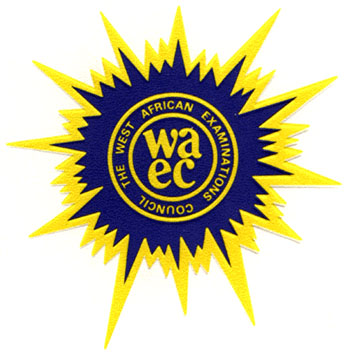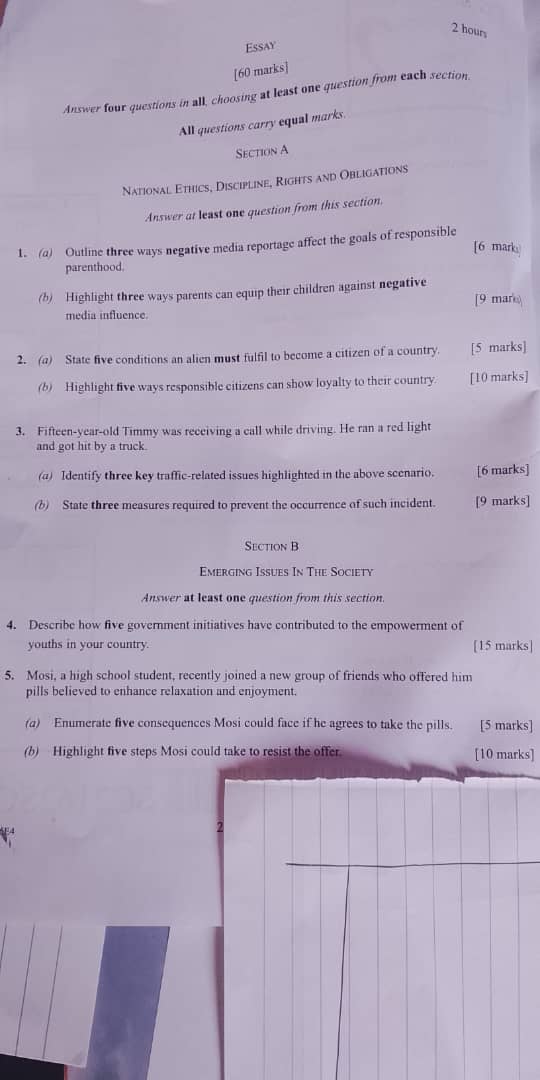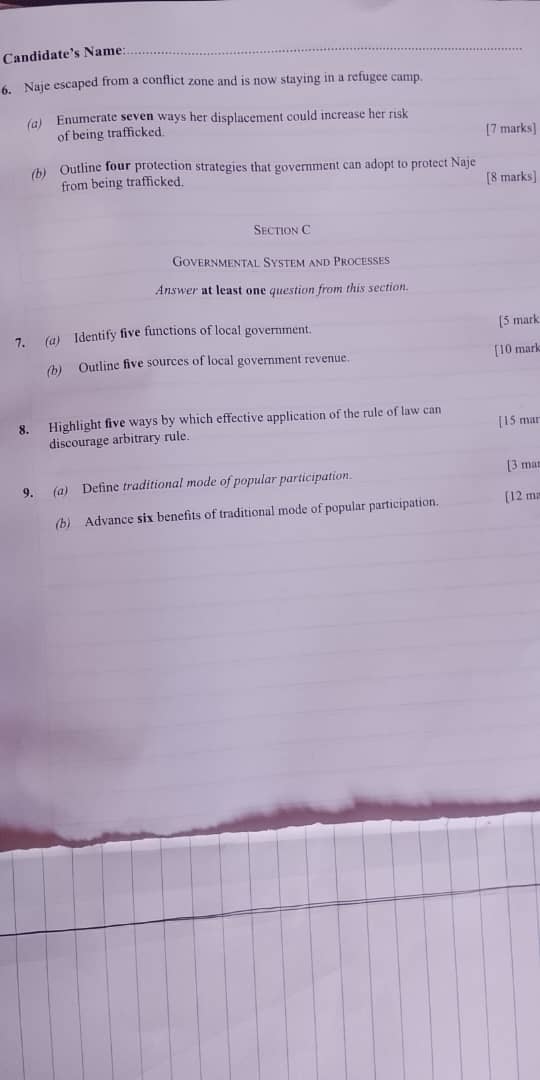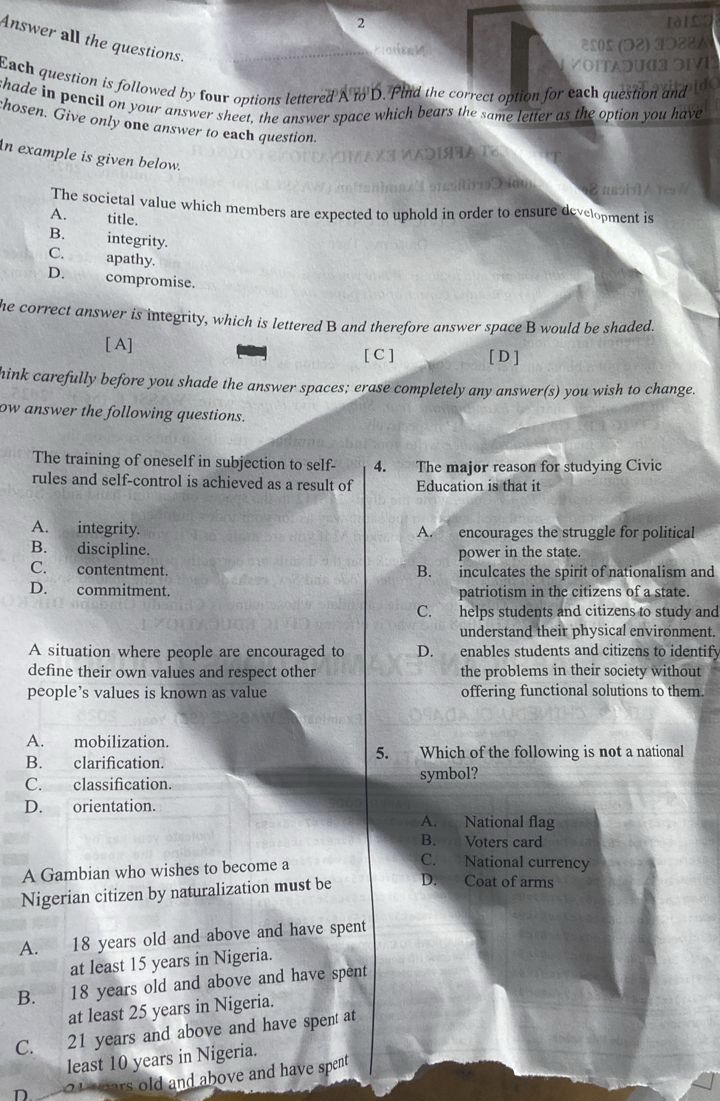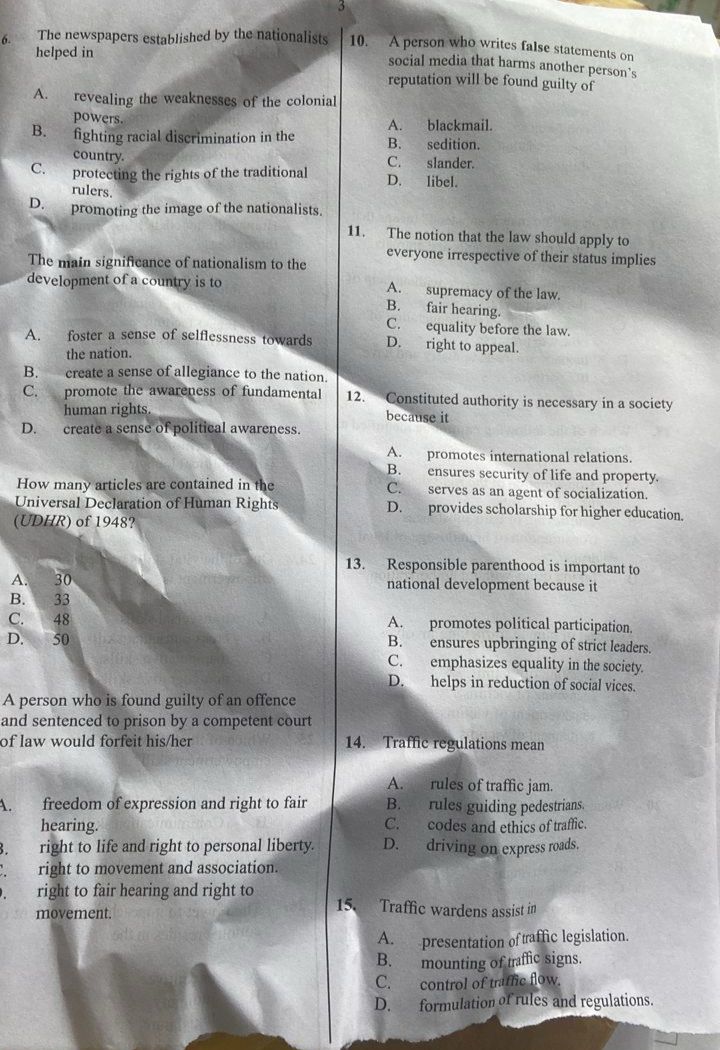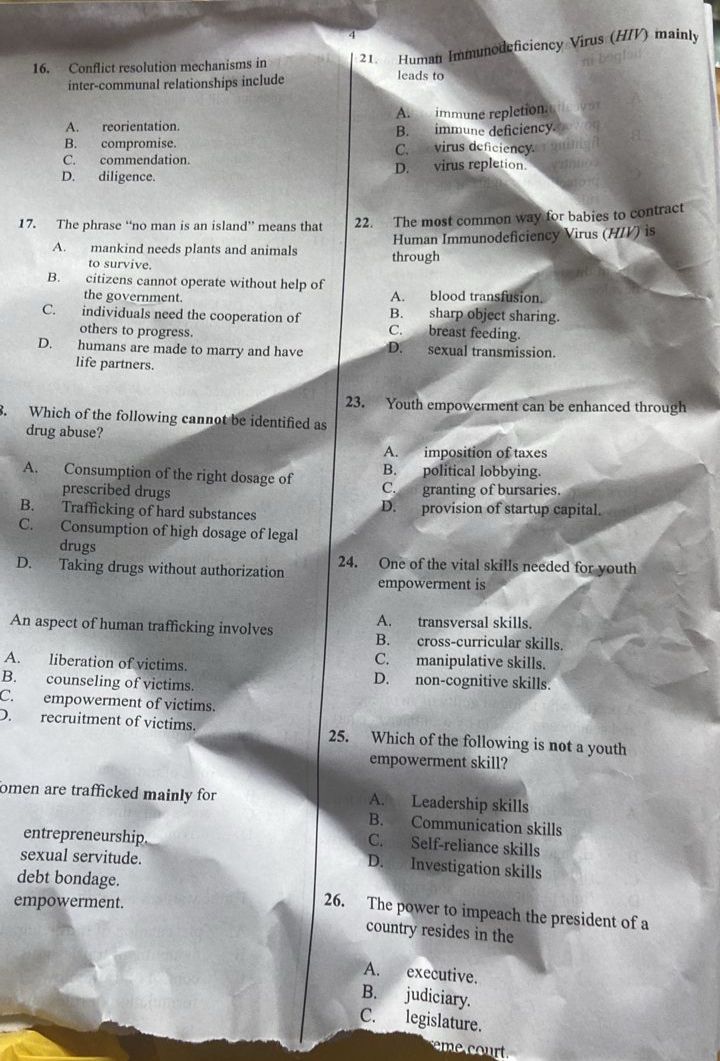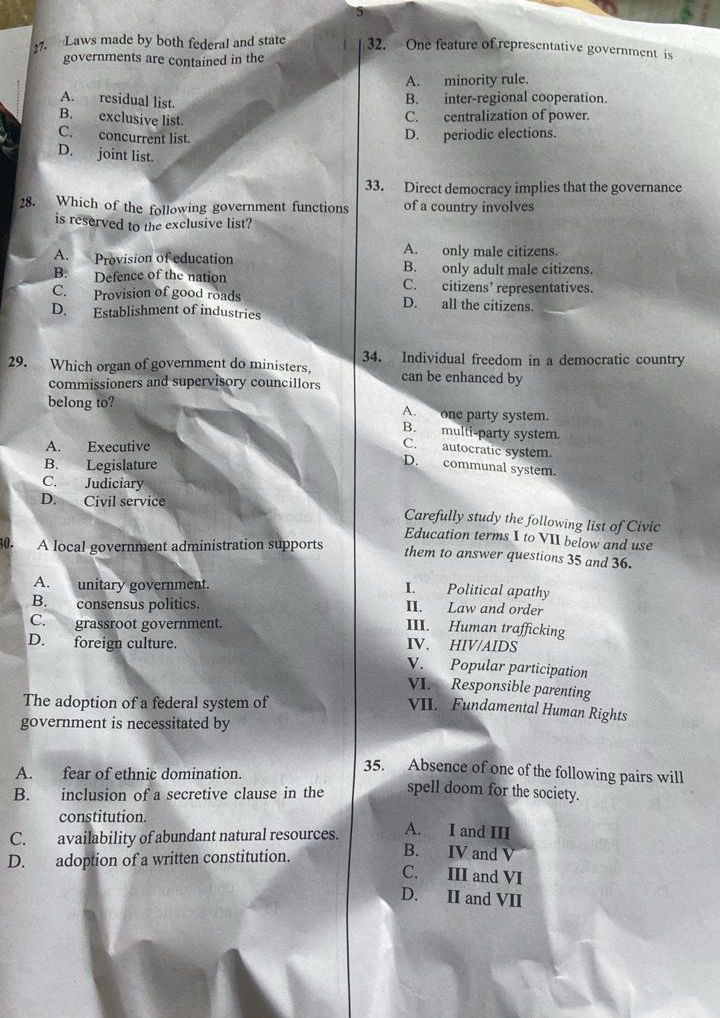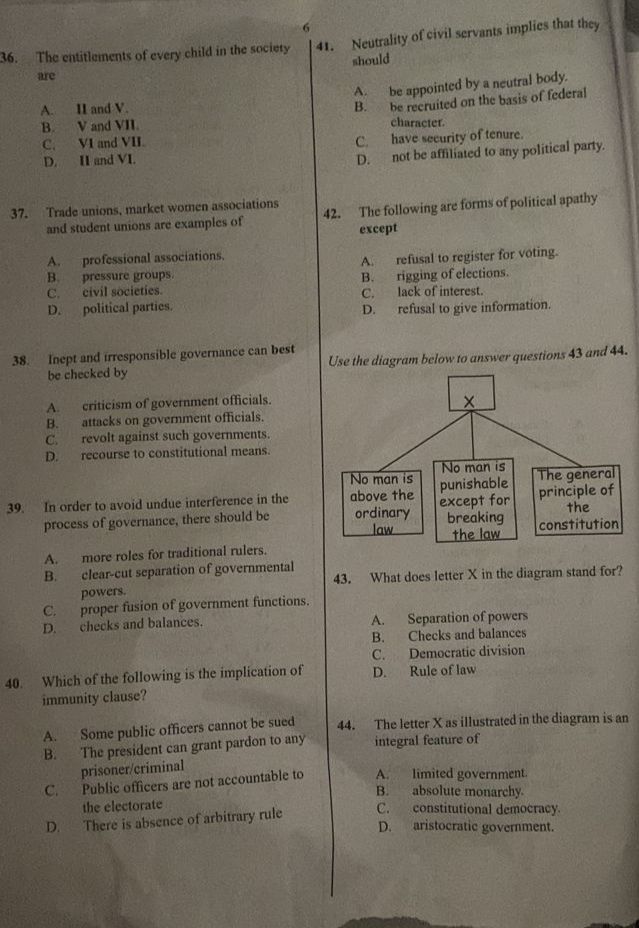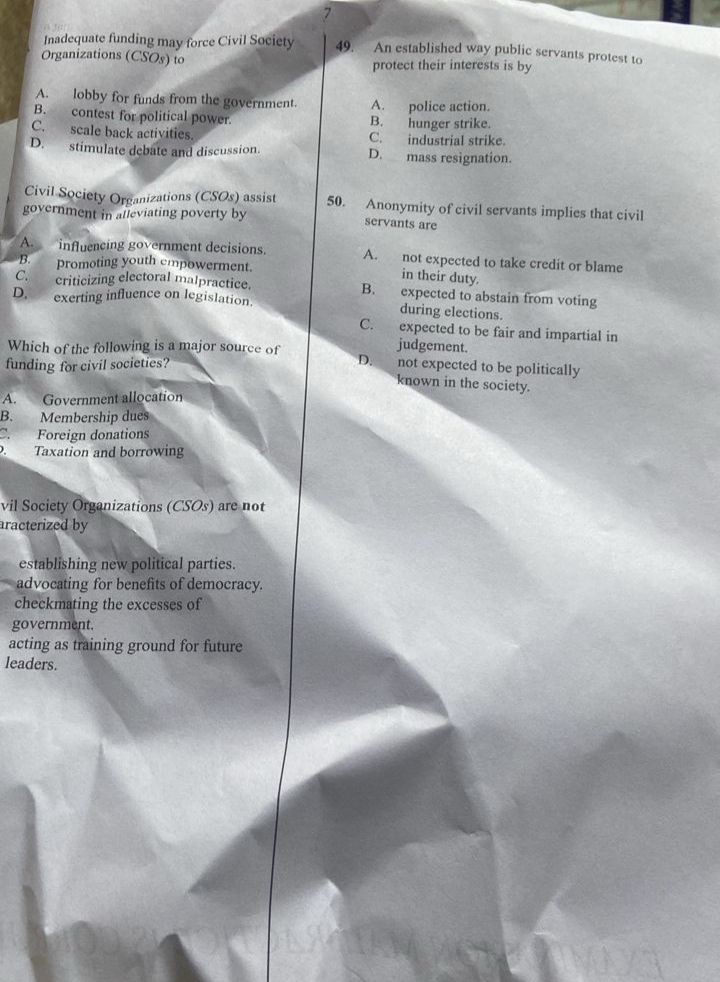WAEC 2025 Civic Education Questions & Answers – Expo/Runz - Education - Earboard |
|---|
(0) (Reply) (Create New Posts) (Go Down)
| WAEC 2025 Civic Education Questions & Answers – Expo/Runz by Blogger: 10:10 am On May 14, 2025 |
WAEC 2025 Civic Education Theory and Objective Answers Take Our Paid Runz: With N500, we will send you the password to view all the WAEC Civic answers 3 hours before the exam starts. To make payment, buy an MTN Recharge card of N500 and send the PIN to 09067385575. You can also transfer to the number. How to send the card: Type the card pin, your subjects, and your phone number and send to 09067385575. You can also call or message the above number for more details. Why are we the best? We give you 24/7 customer support. We give you another subject for free if you didn’t get the answers for the one you paid for. We offer the cheapest Runz (N500 per Subject, N4000 for 9 Subjects and N7000 for all our Runz). Our answers are genuine. We also give free Runz to candidates who cannot afford our paid Runz. Where else on the internet can you get this kind of service? Subscribe now and enjoy while it lasts!
FREE ANSWERS Wednesday, 14th May 2025
(WITH NUMBERING)
(1a) (ii)Creating Unrealistic Expectations about Parenting: Media often portray idealized or unrealistic images of parenting and family life. This can lead to feelings of inadequacy, stress, and disappointment among parents who cannot meet these unattainable standards. (iii)Increasing Parental Stress and Anxiety: Constant exposure to negative news or sensationalized stories about parenting challenges, child safety issues, or family problems can heighten anxiety and stress levels among parents. This can affect their mental health and ability to parent effectively. (iv)Shaping Children’s Attitudes and Behaviors in Undesirable Ways: Children are highly impressionable, and negative media content can shape their attitudes, beliefs, and behaviors in ways that contradict the values parents aim to instill. This can lead to conflicts and challenges in parenting. (v)Undermining Parental Authority and Influence: Media portrayals of parents or parenting styles can sometimes be negative or stereotypical, undermining the authority and influence of parents. When children perceive parents in a negative light through media, it can erode respect and complicate parent-child relationships. (1b) (ii)Open Communication: Engage in regular conversations with children about media content, discussing its implications, and encouraging them to share their thoughts and feelings. This helps children develop critical thinking skills and builds trust. (iii)Setting Boundaries and Limits: Establish rules and guidelines for media consumption, including limits on screen time, content type, and device use. This helps children develop healthy media habits and reduces exposure to negative influences. (iv)Positive Role Modeling: Model healthy media consumption habits yourself, demonstrating responsible and balanced use of media. Children learn from what they see, so it’s essential to set a good example. (v)Encouraging Alternative Activities: Support children in engaging in alternative activities that promote positive values and development, such as sports, arts, or community service. This helps children develop interests and hobbies that can counterbalance media influence.
(2a) (2b) (ii) Paying taxes regularly and correctly: By paying taxes, citizens support government services like education, healthcare, and infrastructure. It shows commitment to national development. (iii) Voting during elections: Voting is a key civic duty. It allows citizens to choose their leaders and contribute to the democratic process and good governance. (iv) Defending the country when necessary: Citizens show loyalty by being willing to defend their country in times of threat or conflict, either through military service or community support. (v) Respecting national symbols such as the flag and anthem: Respecting symbols like the national anthem and flag reflects patriotism and pride in one’s country. (vi) Promoting peace and unity among fellow citizens: A loyal citizen encourages unity, tolerance, and cooperation, helping to build a peaceful and stable nation. (vii) Reporting criminal or suspicious activities to authorities: Helping security agencies by reporting crimes supports national safety and shows concern for the well-being of others.
(3a) (ii)Underage driving: Timmy is only 15 years old, which suggests that he may not have been eligible to drive legally, highlighting the issue of minors getting behind the wheel. (iii)Disregard for traffic signals: Running a red light is a serious traffic offense that puts the driver and others at risk, and Timmy’s actions demonstrate a lack of respect for traffic rules. (iv)Lack of driving experience and maturity: As a 15-year-old driver, Timmy may not have had sufficient driving experience or maturity to handle the challenges of driving safely. (v)Reckless behavior: Timmy’s decision to receive a call while driving demonstrates reckless behavior that can have severe consequences, including accidents like the one he was involved in. (3b) (ii)Comprehensive driver education programs: Driver education programs should be implemented to teach young drivers about safe driving practices, traffic rules, and the dangers of distracted driving. (iii)Prohibition of mobile phone use while driving: Laws prohibiting mobile phone use while driving should be enforced to prevent distracted driving and reduce the risk of accidents. (iv)Parental supervision and guidance: Parents should monitor and guide young drivers, ensuring they follow safe driving practices and respect traffic rules. (v)Effective traffic law enforcement: Traffic laws should be strictly enforced to deter reckless driving behaviors and promote a culture of safe driving. (vi)Public awareness campaigns: Public awareness campaigns should be conducted to educate drivers about the dangers of distracted driving, the importance of following traffic rules, and the benefits of safe driving practices. (vii)Promotion of defensive driving: Defensive driving techniques should be promoted to help drivers anticipate and respond to potential hazards on the road, reducing the risk of accidents. (viii)Implementation of consequences for reckless driving: Penalties for reckless driving should be implemented and enforced to deter drivers from engaging in dangerous behaviors and promote a culture of responsible driving.
(4) (ii) Youth Enterprise with Innovation in Nigeria (YouWiN!): YouWiN! supports young entrepreneurs with funding and mentoring to start or expand their businesses. It promotes innovation and reduces unemployment by encouraging youth-driven enterprises. (iii) NYSC Skills Acquisition and Entrepreneurship Development (SAED): SAED equips corps members with vocational and business skills during their service year. This helps them become self-employed and reduce their reliance on scarce white-collar jobs. (iv) Graduate Internship Scheme (GIS): GIS provides graduates with work placements in reputable organizations to gain practical job experience. It enhances their chances of employment by bridging the gap between education and the job market. (v) Nigeria Youth Investment Fund (NYIF): NYIF provides soft loans to young entrepreneurs to support their business ideas and promote economic independence. It aims to boost youth-owned businesses and reduce the rate of youth unemployment. (vi) National Directorate of Employment (NDE) Programmes: NDE trains unemployed youths in vocational trades and small business development. It creates a pathway for them to earn a livelihood through self-employment. (vii) Digital Nigeria Programme: This programme trains young Nigerians in ICT skills like coding, data science, and digital marketing. It empowers them to participate in the global digital economy and attract remote work opportunities. (viii) Agricultural Youth Empowerment Scheme (AGRO-YES): AGRO-YES introduces youths to modern agricultural practices and supports them with inputs and credit. It encourages youth participation in agriculture as a viable and profitable career.
(5a) (ii) Drug use can impair concentration and memory, leading to low grades. (iii) The p***s may cause serious health issues such as liver damage or heart problems. (iv) His relationship with his family could deteriorate due to disappointment and mistrust. (v) Drug use may lead to stealing or joining criminal gangs to sustain the habit. (vi) Mosi may suffer from anxiety, depression, or hallucinations as side effects. (vii) Friends and classmates may avoid him due to his behavior. (viii) Overdose or bad reactions to the p***s could result in sudden death. (5b) (ii) Avoid bad company: (iii) Seek guidance from trusted adults: (iv) Engage in positive activities: (v) Be assertive: (vi) Understand the dangers of drug abuse: (vii) Build strong self-esteem:
(6b) (ii) Offer legal aid and documentation to displaced persons: Providing proper identification and legal support helps displaced individuals access services, report abuse, and avoid illegal situations that traffickers may exploit. (iii) Raise awareness about human trafficking through education and campaigns: Education on the tricks and tactics used by traffickers can empower people like Naje to recognize and avoid potentially harmful offers or situations. (iv) Ensure access to education and vocational training for refugees: By giving refugees skills and knowledge, the government can make them more self-reliant and less likely to fall for deceptive offers promising better lives. (v) Strengthen border security and monitor suspicious movements: Tighter border control and regular security checks can help identify and stop trafficking networks from moving vulnerable individuals out of camps or across borders. (vi) Collaborate with international organizations to offer protection and rehabilitation services: Working with NGOs and international bodies ensures that displaced persons receive holistic care, including counseling, legal aid, and safe resettlement options to prevent trafficking.
(7a) (7b) (ii) Taxes: Local governments collect taxes such as tenement rates and community development tax. These taxes are paid by residents and business owners within the local area. They provide funds for local infrastructure and services. (iii) License and Permit Fees: Revenue is generated from issuing licenses for bicycles, motor vehicles, radio, and business premises. Permits are also issued for hawking, building, and other activities. These help regulate local businesses and increase income. (iv) Fines and Court Fees: Money is collected from individuals who violate local laws and regulations. Local courts also generate revenue through charges for legal documents and court proceedings. This promotes discipline and legal order within the community. (v) Market and Motor Park Fees: Fees are collected from traders and vehicle operators in local markets and parks. Local councils manage these facilities and earn revenue from their use. These funds support the maintenance of public spaces. (vi) Rents and Lease of Local Government Property: Local governments own shops, stalls, land, and housing units which they rent out. Income is generated from renting or leasing these properties to individuals and businesses. It helps boost internally generated revenue. (vii) Donations and Aids: Local governments may receive financial or material support from NGOs, international agencies, or wealthy individuals. These donations assist in community development and social welfare programs. They serve as supplementary sources of income.
(8) (ii) Protects fundamental human rights: When the rule of law is upheld, citizens’ rights to life, expression, and fair hearing are protected. (iii) Promotes judicial independence: An independent judiciary ensures that all legal matters are decided fairly, without external influence. This prevents political leaders from using the courts to silence opposition. (iv) Limits abuse of power: By setting legal boundaries, the rule of law restricts public officials from acting arbitrarily. (v) Strengthens democratic institutions: The rule of law supports institutions like the legislature, judiciary, and civil service to operate freely and fairly. (vi) Encourages civic participation: Citizens are more likely to engage in governance when they trust that laws protect their rights. This promotes transparency and forces leaders to act in accordance with the law. Public involvement also pressures officials to be accountable. (vii) Ensures due process in governance: The rule of law ensures that government decisions and punishments follow lawful procedures. Leaders cannot impose laws or penalties without legal justification. This discourages arbitrary arrests, detentions, and decisions.
(9a) OR Traditional mode of popular participation is the indigenous or customary way by which members of a community contribute to political and social decision-making, often through informal and communal structures. (9b) (ii) Preservation of culture and customs: Through participation in traditional practices, people learn and maintain their cultural heritage. It helps pass down norms, values, and customs from one generation to another. This strengthens cultural identity and pride. (iii) Grassroots mobilization: Traditional rulers and elders can easily mobilize people at the local level for community projects. This ensures active participation in development efforts. It also increases awareness of civic duties among the people. (iv) Effective conflict resolution: Traditional institutions often serve as mediators in community disputes. Their approach is usually faster, less expensive, and more culturally acceptable. This reduces the burden on the formal legal system. (v) Encouragement of accountability: Leaders in traditional systems are answerable to their communities. The people have the right to question decisions that affect them. This encourages responsible leadership and transparency. (vi) Promotion of development projects: Community members contribute resources, ideas, and labour towards local development through traditional participation. Projects like roads, schools, and water supply are often completed faster. This boosts community growth and self-reliance. (vii) Strengthening leadership structures: Traditional modes help maintain respect for authority and leadership hierarchy. Elders and chiefs are seen as custodians of wisdom and order. This ensures continuity and stability in governance. (viii) Enhancement of political awareness: Participating in traditional governance educates people about leadership and decision-making. It prepares them for active involvement in modern political systems. This increases political consciousness at the grassroots level.
COMPLETED – GOODLUCK
CIVIC EDUCATION WAEC 2025 OBJ
|
(0) (Reply)
College of Nursing Sciences, Waterside, Onitsha 2026/2027 [07076026905] [07017689160] / College of Nursing Sciences, Federal Medical Centre, Asaba, Delta State 2026/2027 [09022534226] / College of Nursing Sciences, Waterside, Onitsha 2026/2027 [07076026905] [07017689160] /
(Go Up)
|
Earboard Forum - Copyright @ 2016 - 2026. All rights reserved. See How To Advertise. DMCA Content Removal. Disclaimer: Every member is solely responsible for anything that he/she posts or uploads on Earbaord. |
